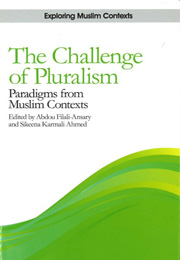1 - Pluralism in Muslim Societies
from PART ONE - THE HERITAGE: HISTORICAL CONTEXTS
Published online by Cambridge University Press: 12 September 2012
Summary
A widely-held and disseminated thesis maintains that so-called “Muslim societies” possess a rigorous generic unity and internal coherence of such import that the question of pluralism within them – its presence, its absence, its legal, social and political forms and otherwise – is one which may credibly be treated in a general way of broad applicability. The assumption made implicitly or explicitly is that “Muslim societies” form a self-consistent unit which may be summarised by a small number of definitively constituted features transcending space, time and circumstance, features that are at once derived from, and foreclosed by, Muslim scriptures and the early historical experience of Muslims.
Of course, such a thesis may be held to be sustainable if one maintained, first, that Muslim societies have preserved a continuity, homogeneity and immobility so prodigious as to set them apart from other human societies; and second, if one held that religion as defined by minimal dogma and expressed in traditional Muslim law, as popularly understood, was and still is the ruling instance which defines the lives of Muslims everywhere. Finally, if one put forward a third proposition, that Muslims have, as a consequence of what has just been said, always been at one regarding a number of essential matters, including the question of pluralism as defined today, that there is an identifiable and common “Muslim position” on pluralism.
- Type
- Chapter
- Information
- The Challenge of PluralismParadigms from Muslim Contexts, pp. 9 - 15Publisher: Edinburgh University PressPrint publication year: 2009



